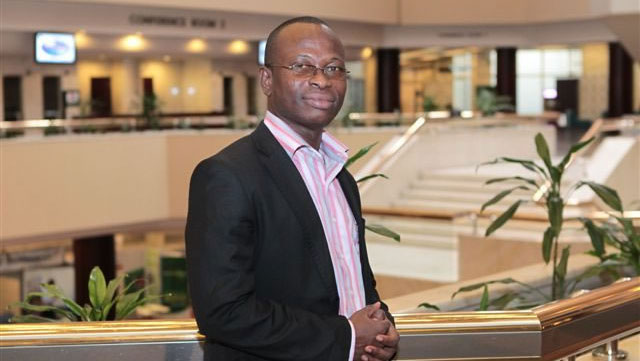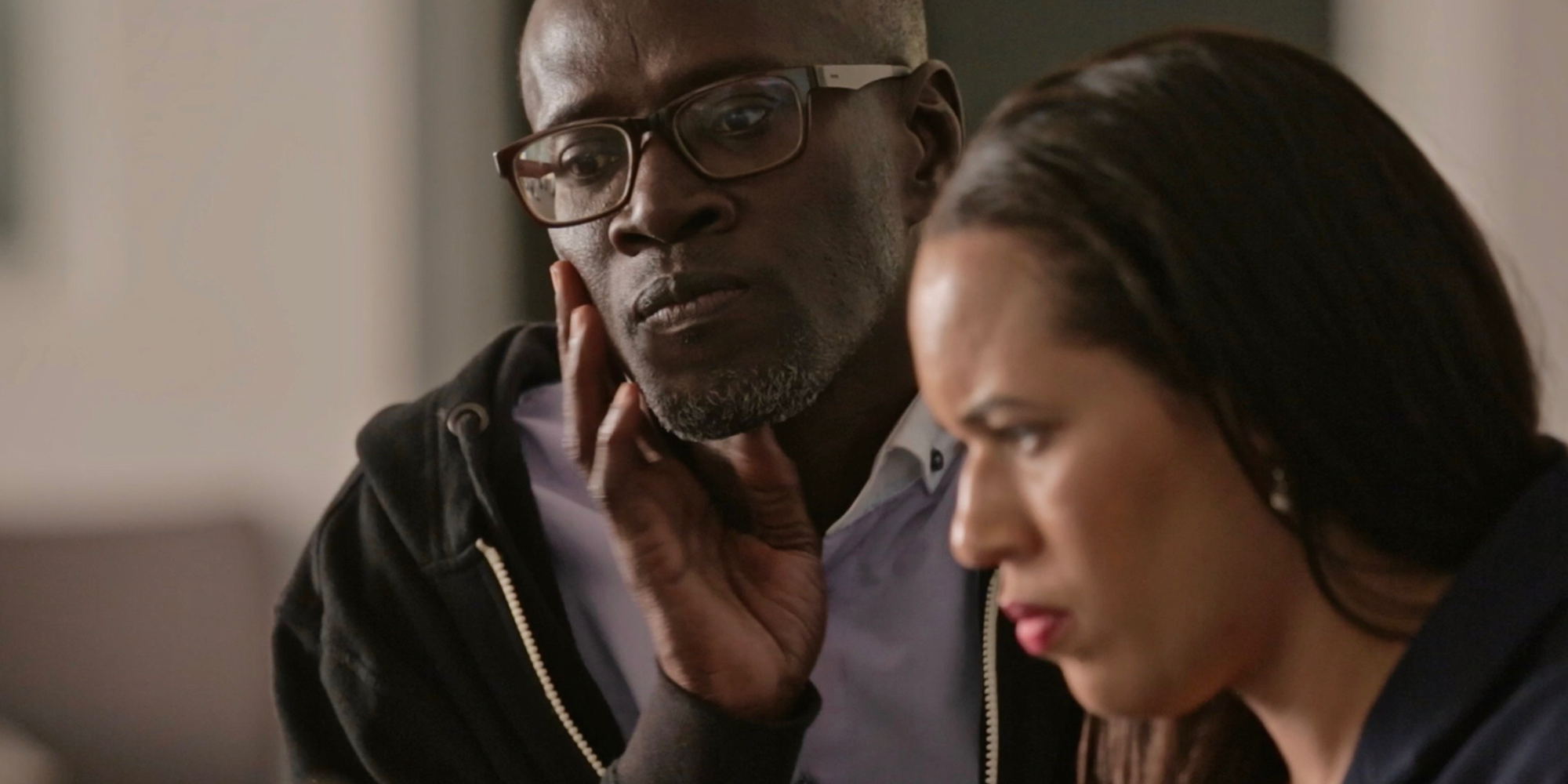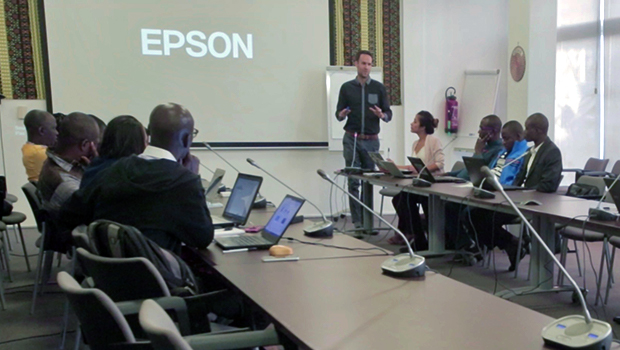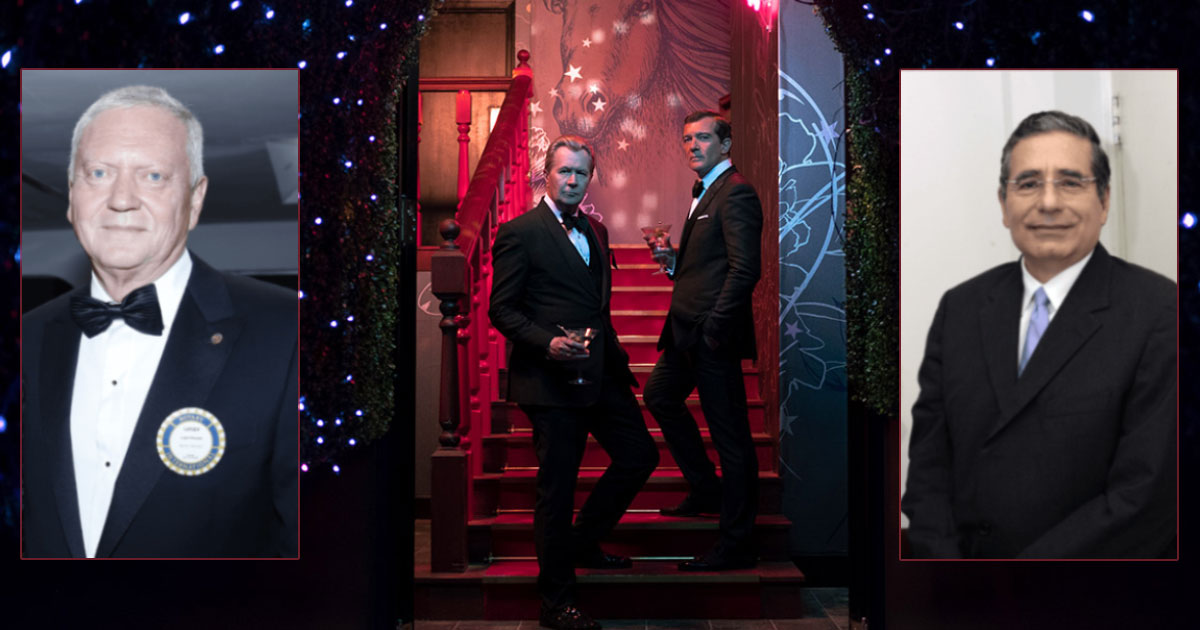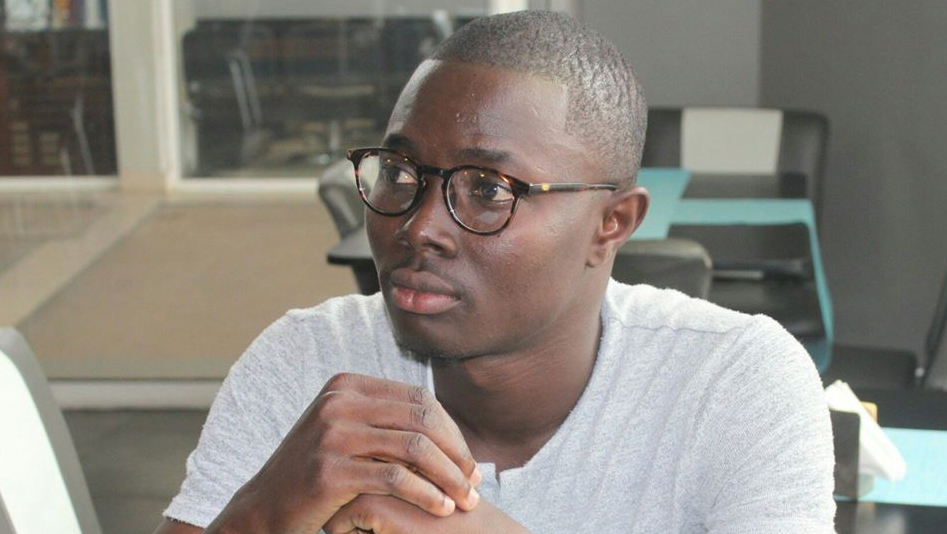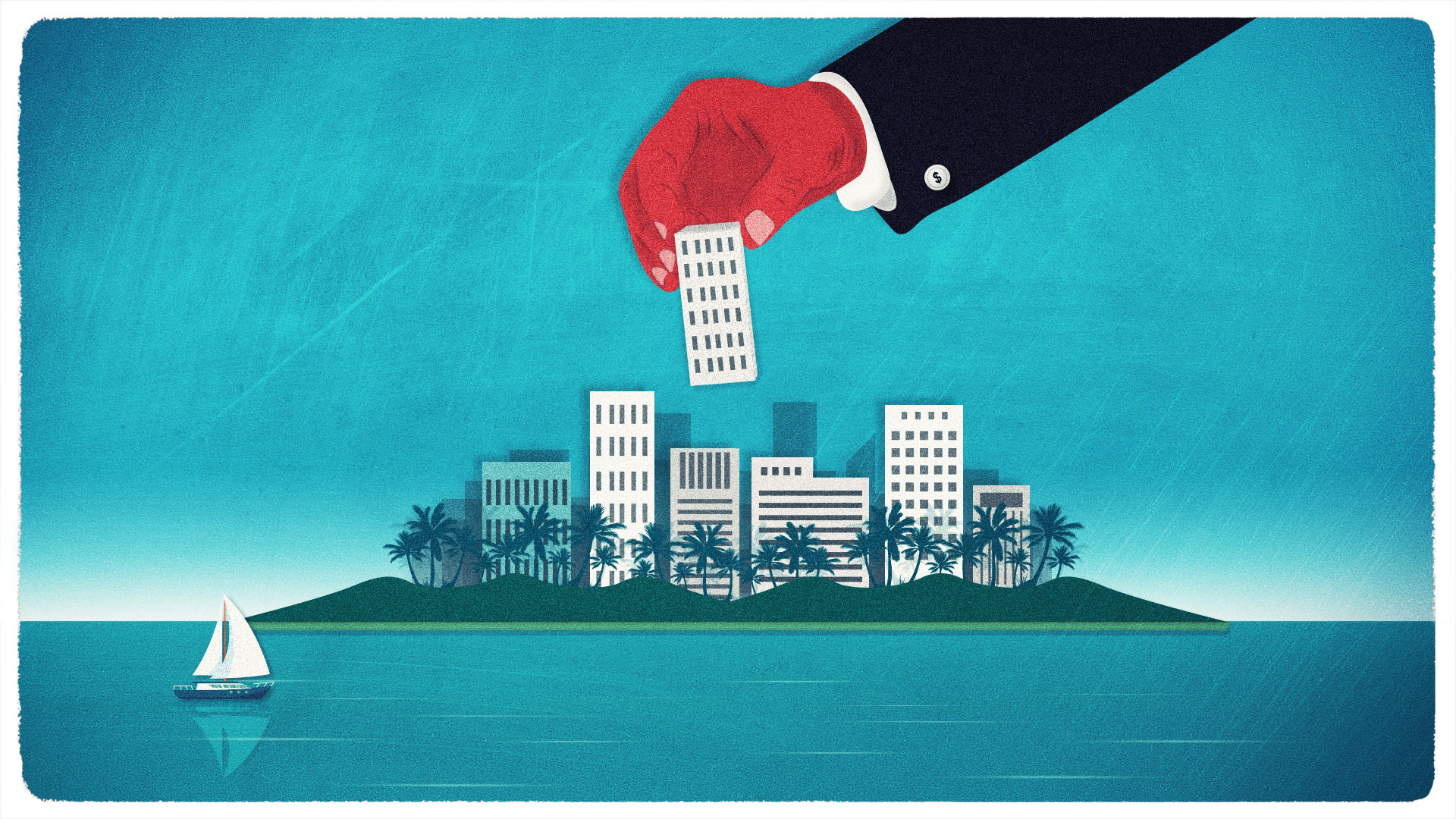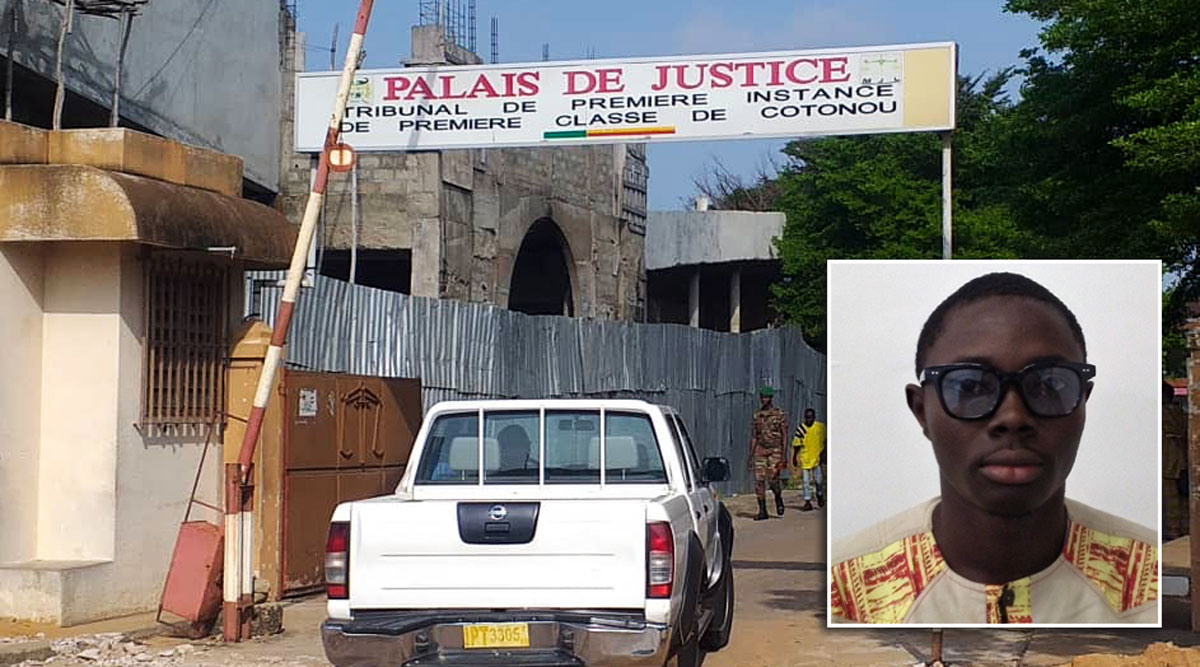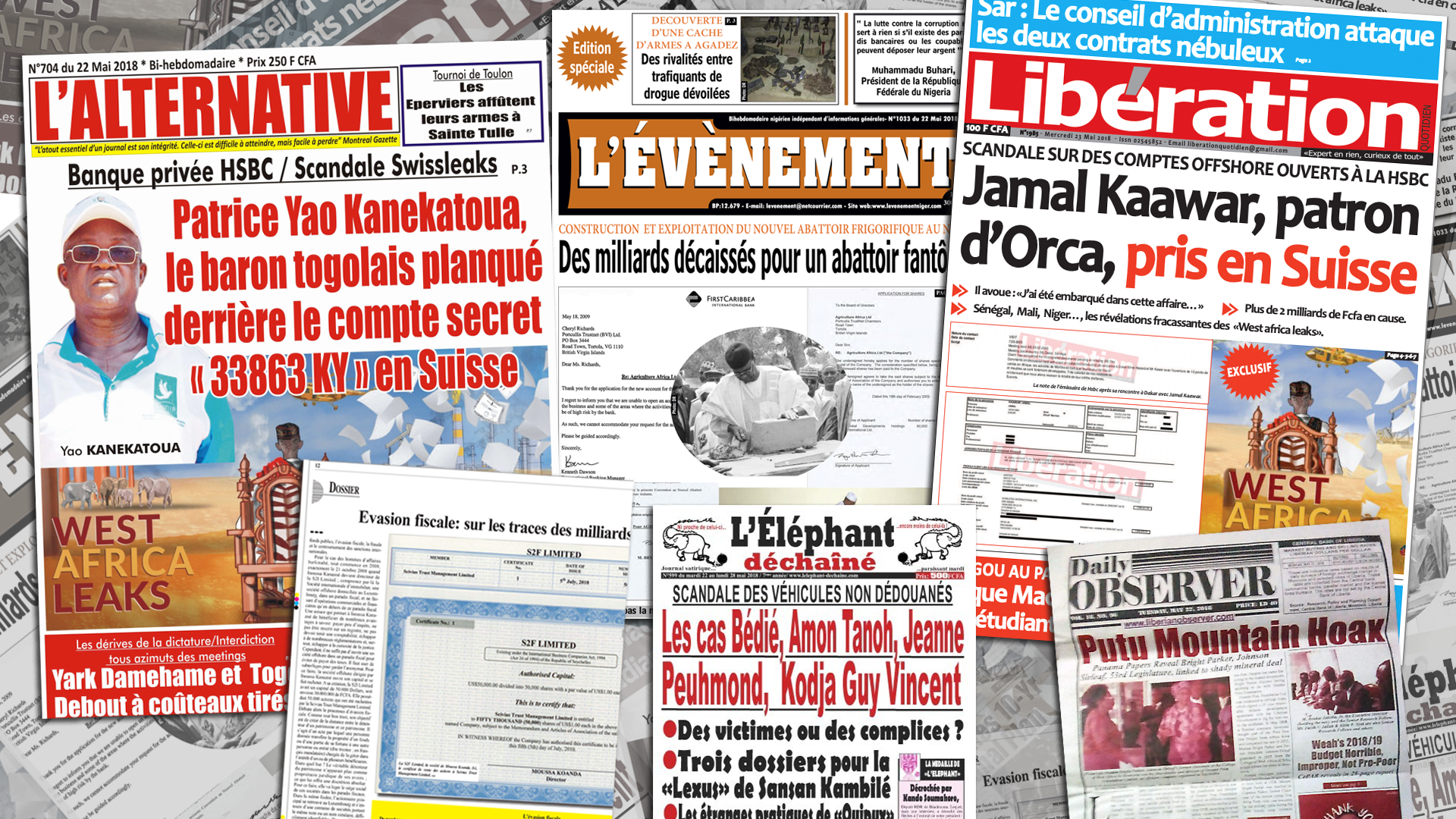The International Consortium of Investigative Journalists collaborates with hundreds of members across the world. Each journalist is are among the best in his or her country and have won national and global awards. Our monthly series, Meet the Investigators, highlights the work of these tireless journalists.
Emmanuel K. Dogbevi is the founder of Ghana Business News based in Accra. Most recently, Dogbevi worked with ICIJ on the award-winning 2018 investigation West Africa Leaks.
Tell us about an investigation of which you are particularly proud
One set of work I did that has continued to resonate, not only in Ghana but around the world, is when I exposed the illegal dumping of e-waste in Ghana from the West.
Authorities in Ghana were unaware that e-waste [old and broken computers, televisions, and other electronic equipment] was being dumped in Ghana. It was in June 2007 when I first broke the story for the national newspaper and subsequently wrote a number of articles and did more investigations.
Eventually, the international community listened. Some people were arrested in Europe. People in Europe say they’re bringing used computers to poor people who can’t afford them. But its e-waste. Subsequently, the international community also showed an interest. The German government has provided at least 30 million euros for an electronic recycling plant to be set up in Ghana. In November, [Ghana] put a levy on imported computers, and that amount is going to be used to be invested in managing the influx of e-waste in the country.
That’s a powerful example of impact. How do you explain that?
The response didn’t come immediately. Typically in Ghana, authorities won’t respond – they just ignore your story or they act quietly behind the scenes without making you feel like ‘Oh, the journalist did the work and that’s what we are responding to.’
For a long time, even the mainstream media couldn’t get it. They didn’t understand what it was. They never did a story on e-waste until the BBC, NPR, other western media came to Ghana following up on my story. Then the Ghanian media mainstream started reporting about e-waste.
The revelations that I exposed in the e-waste story were such that if you care about your people, you wouldn’t look the other way. Even more so when the Western world was feeling guilty because all this e-waste was coming from the West disguised as used computers and donated to charities in countries like Ghana.
E-waste contains a lot of poisonous chemicals like polybrominated flame retardants, lead and so on that predispose people to leukemia, harm fetuses, and so on. It kind of forced people to start doing something about it.
It’s all about a learning attitude… You don’t have to put up an attitude of ‘I know it all.’
– Emmanuel K. Dogbevi
You specialize in finding and using documents like court records and company accounts. What is your advice to journalists who want to use information that’s already out there?
I think it’s all about a learning attitude: learning, learning and learning.
You don’t have to put up an attitude of ‘I know it all.’ You will always have something new to discover that could tilt your investigation or your writing to make it more impactful or influential.
A very good journalist should also pay attention to good quality writing. You may have a great investigation, but if you write very poorly, you lose your audience, you lose impact. So a good investigator should also be a good storyteller. You should learn writing skills and there are a lot of opportunities everywhere to learn to write very well and be able to communicate your investigation in such a way that people who are interested in reading your story, or following your video, or whatever, will be able to derive meaning, and they can then be pushed to act.
What is one common mistake that you think journalists can be guilty of?
Overconfidence. I think they trust themselves too much. The other mistake is that they trust their sources too much. You don’t fully trust your sources until you can verify. And three things you must do: verify, verify, verify. These are the basic mistakes most investigative journalists do.
What are some unique or lesser-known realities about investigative journalism in Ghana?
People expect that you must use hidden cameras and that it must be sensational, explosive. For a long time, until I worked on ICIJ’s projects, nobody really considered me an investigative journalist even though I’ve been doing investigations for years. And I really never called myself an investigative journalist because I didn’t do dramatic stories. I took my time and investigated and contextualized my work.
In Ghana what makes investigative journalism different is the fact that people really don’t pay attention unless it’s dramatic. I don’t write dramatic stories, I don’t sensationalize my stories. I just put out the facts as I find them and let the public decide.
You’re a strong proponent of solidarity among journalists. Why is that an important notion for journalists to embrace?
What most people don’t know, particularly people in the West don’t know, is that being a journalist, and a particularly hard-hitting journalist, in West Africa is a lonely world where everybody avoids you, even your own friends. Everybody sees you as a troublemaker.
Most journalists are more or less what I call doing marketing for corporations and politicians because they just repeat what politicians say. They don’t question them, they don’t try to figure out what the facts are.
The only way I can support other journalists is to encourage them to keep going and to make them feel like someone is watching their back. Yes, we are competitors. But we are not competing when it comes to the facts that in terms of the public interest we are serving our people. If you do a story that serves a public interest, I benefit. If I do a story that serves a public interest, you benefit. We are in it together. It is not a matter of you and me, or you versus me.
We’ve just wrapped up the 2019 Global Investigative Journalism Conference in Hamburg, Germany. What are you going to take away from this event?
GIJN for me is a reflection of what people have resolved to do in spite of the attacks on investigative journalists.
So many of our colleagues and friends are in jail, some have been killed. In Ghana, it’s become even more dangerous to do journalism. While everyone on paper thinks Ghana is a democracy, which it ought to be, Ghana’s democracy begins and ends with an election. Once power is handed over, it looks like the new government that takes over runs rogue. It’s becoming for me very dangerous now in Ghana and quite unsafe for journalism because they are out to attack you. They do it so openly and brazenly, particularly following the murder of Ahmed Hussein-Suale they kind of say, ‘Well we did it to him, we will do it to you too.’
Apart from that, I think that Ghanaian journalism has huge potential to grow if we get the necessary support. The necessary support in terms of training, which is also of course why I also do trainings to motivate other journalists and show them how it can be done.
